Opinions
Flood of anti-homosexuality bills in Africa threatens us all
Ugandan lawmakers on Tuesday approved revised Anti-Homosexuality Bill

Castration. Banishment. Execution.
This is the fate that a slew of new bills and their proponents in Africa seek for lesbian, gay, bisexual, transgender and queer (LGBTQ) people: Not only to criminalize adult same-sex sexual intimacy, but to eradicate sexual and gender diversity–including by executing queer people. 32 countries in Africa already criminalize consensual same-sex conduct. The new wave of laws goes much further, enforcing public silence around LGBTQ people’s existence, enlisting citizens as spies, and making every human rights proponent a potential criminal.
LGBTQ Africans are a fact of life. No law will make them disappear. But by promoting laws that posit queer people’s very existence as a problem to be eliminated, and constructing an unseen enemy that could be hiding around any corner, politicians convince the public to accept shockingly repressive legislation.
The ideology underpinning such laws is nothing short of genocidal. Under international law, genocide is the attempt to destroy a group of people, in whole or in part, including by “deliberately inflicting on the group conditions of life calculated to bring about its physical destruction.” The strict legal definition of genocide only applies to “national, ethnical, racial or religious” groups, but no other term as clearly captures the depravity of legislation that seeks to eliminate people because of their sexuality or gender.
Genocidal ideology underlies Uganda’s Anti-Homosexuality Bill of 2023, passed by Parliament on March 21. It attracted international condemnation as possibly the worst anti-LGBTQ law anywhere in the world, imposing the death penalty for some forms of consensual same-sex conduct. That bears repeating: 387 members of Parliament in Uganda voted to subject gay people to the firing squad for consensual sex. They voted for the death penalty yet again after President Yoweri Museveni returned the bill to Parliament on April 20, requesting amendments including the removal of the death penalty. The revised bill, passed on May 2, contains only minor changes. Families and landlords will still be forced to turn out queer people living into the streets. Speaking up for the “normalization” of sexual and gender diversity, or funding work that advances human rights or economic inclusion for LGBTQ people, still leads to a 20-year prison sentence. Prison officials and social welfare agents would be tasked with “rehabilitating” people convicted under the bill in a form of state-sponsored “conversion therapy” practices. The law maintains a “duty to report” anyone suspected of homosexuality, calling on everyone in Uganda to support the police state by spying on their neighbors, family members and coworkers.
Uganda is only the tip of the iceberg. Its brand of virulent homophobia appears to be contagious: In Kenya, MP George Peter Kaluma submitted the Family Protection Bill of 2023 to the National Assembly on April 7. The bill was a harsh response to a Supreme Court victory affirming that the National Gay and Lesbian Human Rights Commission had the constitutional right to register and operate as a non-governmental organization. Kenya’s proposed law follows Uganda’s example in providing the death penalty for some consensual same-sex acts, prohibiting organizations from “normalizing” homosexuality, and penalizing landlords who rent living quarters to persons in same-sex relationships. It copies and pastes language from Uganda’s bill that forces citizens to become thought police: If you “suspect” that someone “intends” to commit an act prohibited by the proposed law and do not report them, you can be fined or jailed. It also prohibits “cross-dressing,” an attempt to specifically legislate trans people out of existence.
Ghana’s Human Sexual Rights and Family Values Act of 2021, currently before Parliament, seems to have provoked less global outrage: It prescribes 3-year prison sentences for offenders rather than life imprisonment or the death penalty. Yet some of its provisions are even more draconian. They criminalize the very existence of diverse identities and orientations: a person can be shut behind bars for “holding out” as “lesbian, gay, bisexual, transgender, transsexual, ally, pansexual and any other diverse sexual or gender identity.” Again, an attempt to legislate queer people out of existence.
Other proposed anti-homosexuality legislation looms in Francophone countries that were spared the British colonial heritage of criminializing so-called unnatural offenses. In Mali, Justice Minister and Keeper of the Seals Mahamadou Kassogue described homosexuality as “an unnatural relationship,” stating that it would soon be banned and that the Malian “justice does not accept this practice of homosexuality.” In Niger, President Mohamed Bazoum made remarks on the intention to introduce a new Penal Code that would criminalize homosexuality.
The tabling of legislation has been accompanied by a barrage of comments from politicians calling for atrocities to be perpetrated against LGBTQ people. On March 21 during Uganda’s Parliamentary Caucus on the Anti-Homosexuality Bill, MP Sarah Opendi made statements to the effect that life imprisonment upon conviction for homosexuality is inadequate, adding that the most appropriate sentence would be castration. In Tanzania, a senior ruling party member Mary Chatanda also called for castration of people in same-sex relationships in March. Like Uganda, Tanzania already has a life sentence on the books for “unnatural offenses” and while no new law is pending, Chatanda’s comments were followed by a spike in anti-LGBTQ violence and raised fears that new laws might be tabled. Still within the same month, Burundi President Evariste Ndayishimiye urged citizens to “curse those who indulge in homosexuality, because God cannot bear it.” He added that “they must be banished, treated as pariahs in our country.” Queer people are already denied other fundamental rights in Burundi, where the law lists homosexuality as a basis of expelling students from secondary schools, thus interfering with the right to access education.
From the death penalty to elimination of safe access to housing, health care and education to calls for castration, banishment and mandatory “conversion therapy” practices, these laws and statements share one characteristic: They seek to destroy LGBTQ lives and livelihoods. Outright has documented how even before such bills are passed, they contribute to increased violence by members of the public as well as by law enforcement officials. These bills are deadly, and while legislating the elimination of queer people from public existence may not legally constitute genocide, it is genocidal thinking. Politicians who call for the execution, castration or banishment of queer people should also be aware that they are advocating crimes against humanity. The implementation of such laws could be tantamount to gender persecution — persecution on the basis of gender as part of a widespread or systematic attack directed against any civilian population — which is prohibited under the Rome Statute that established the International Criminal Court.
Meanwhile, not only queer people but also the general public in countries passing such bills will see their rights eviscerated through provisions that regulate what opinions they can express, what human rights causes they can support and to whom they can provide goods and services. Internet users, medical providers, artists, well-wishers, allies and creatives will find themselves in conflict with these laws.
Human rights are universal, inherent, inalienable and indivisible. Outright not only recommends that these bills are not affected into law, but also urges all civil society to condemn such moves to curb the enjoyment of human rights and fundamental freedoms in the name of eliminating LGBTQ existence.
Commentary
Celebrating 15th anniversary of Harvey Milk Day
A powerful reminder that one person can make a difference

Harvey Milk’s birthday, May 22, is officially a Day of Special Significance in California. Other states also honor Milk.
Milk was the first openly gay man elected to public office in U.S. history. In 1977, he was elected to a seat on the Board of Supervisors in San Francisco. His term began in January 1978 and ended in November when disgruntled former Supervisor Dan White assassinated Milk and Mayor George Moscone at City Hall.
In his 1982 book “Mayor of Castro Street: The Life and Times of Harvey Milk,” Randy Shilts wrote a moving account of San Francisco’s 1978 memorial for Milk. A “massive crowd stretched the entire distance from City Hall to Castro Street, some 40,000 strong utterly silent,” Shilts wrote. The crowd “ostensibly memorialized both George Moscone and Harvey, but few speakers quarreled that the crowd had amassed chiefly to remember the gangly ward politician [Milk] who had once called himself the mayor of Castro Street.”
Shilts quoted Board of Supervisors President Dianne Feinstein, at the time acting mayor, telling the mourners that Milk “was a leader who represented your voices.” Another speaker said Milk “was to us what Dr. King was to his people. Harvey was a prophet [who] lived by a vision.” Equality was Milk’s vision.
Shilts presciently titled the last section in his book “The Legend Begins.” In 1979, after a jury gave assassin White a light seven-year sentence, LGBT rioters rocked San Francisco in what is called “The White Night Riots.” During the riots, Shilts wrote that “a lesbian university professor yelled into a feeble bullhorn: ‘Harvey Milk lives.’” Since 1978, Harvey Milk’s courageous leadership has been celebrated globally.
Over four years, 2006-2010, San Francisco reminded the country that Milk was a gay man worthy of great honors. The 2008 movie “Milk,” filmed partly in San Francisco, with Sean Penn as Milk, ignited greater public interest in the legendary gay activist. Gay screenwriter Dustin Lance Black and Penn won Academy Awards in 2009.
The film led Gov. Arnold Schwarzenegger to sign legislation making Milk’s birthday a Day of Special Significance. Also, President Barack Obama awarded Milk with a posthumous Presidential Medal of Freedom. On Milk’s 84th birthday, the U.S. Postal Service issued a commemorative Forever stamp in his honor.
California’s Harvey Milk Day recognizes Milk for his contributions to the state. It also encourages public schools to conduct “suitable commemorative exercises” to honor Milk.
“To me, [Milk] was a man who was a capitalist, and an entrepreneur who happened to be gay,” said Republican Sen. Abel Maldonado, the only Republican to vote for the bill to create Harvey Milk Day.
The newer scholarship about Milk provided additional insight into his activism. “An Archive of Hope: Harvey Milk’s Speeches and Writings” edited by James Edward Black, Charles Morris, and Frank Robinson, published in 2013 by the Univ. of California Press, is an excellent example.
The book’s title is drawn from Milk’s 1978 speech called “The Hope Speech.” He spoke about people [gays, seniors, Black Americans, disabled, Latinos, Asians] “who’ve lost hope.” He proceeds to talk about inspiring hope in others who are struggling when the “pressures at home are too great.” It is a passionate speech, based largely on Milk’s conversations with people in the Castro. In a review of the book for The Gay and Lesbian Review Worldwide, I wrote it is: “An important contribution to the corpus of work on Harvey Milk as a writer and orator.”
Milk believed that it was important for members of the LGBTQIA+ community to come out. If more people were aware of their LGBTQIA+ associates who were their friends, family, and loved ones, then discrimination would end. To Milk, coming out would lead to ensuring LGBTQIA+ civil rights.
In 2007, during Pride in San Francisco I worked at a nonprofit’s booth in Civic Center Plaza. A man stopped to talk. I mostly listened. He was a veterinarian from a small town in Arkansas. He was gay and closeted. He regularly visited San Francisco for Pride. Afterward, he regularly returned to his closeted life in Arkansas. I felt sorry for him. Though I was a stranger to him, he needed to come out to me. I was reminded of Milk’s wisdom about the freedom of coming out.
Harvey Milk Day is for all people who need hope. Milk’s life is a lesson that one person can make a difference. A strong, united community inspired by Milk and others has changed and continues to change the world.
Milk’s short political career led to long-term LGBTQIA+ political leadership from the Bay Area to Washington, D.C. to Miami to Seattle. To paraphrase a Woody Guthrie song: This LGBTQIA+ Land is Our Land. Happy Milk Day 2024!
James Patterson is a lifetime member of the American Foreign Service Association.
Opinions
Rosenstein: Vote McGuiness for Delaware’s 14th District
For responsible growth and continued improvements in Sussex County
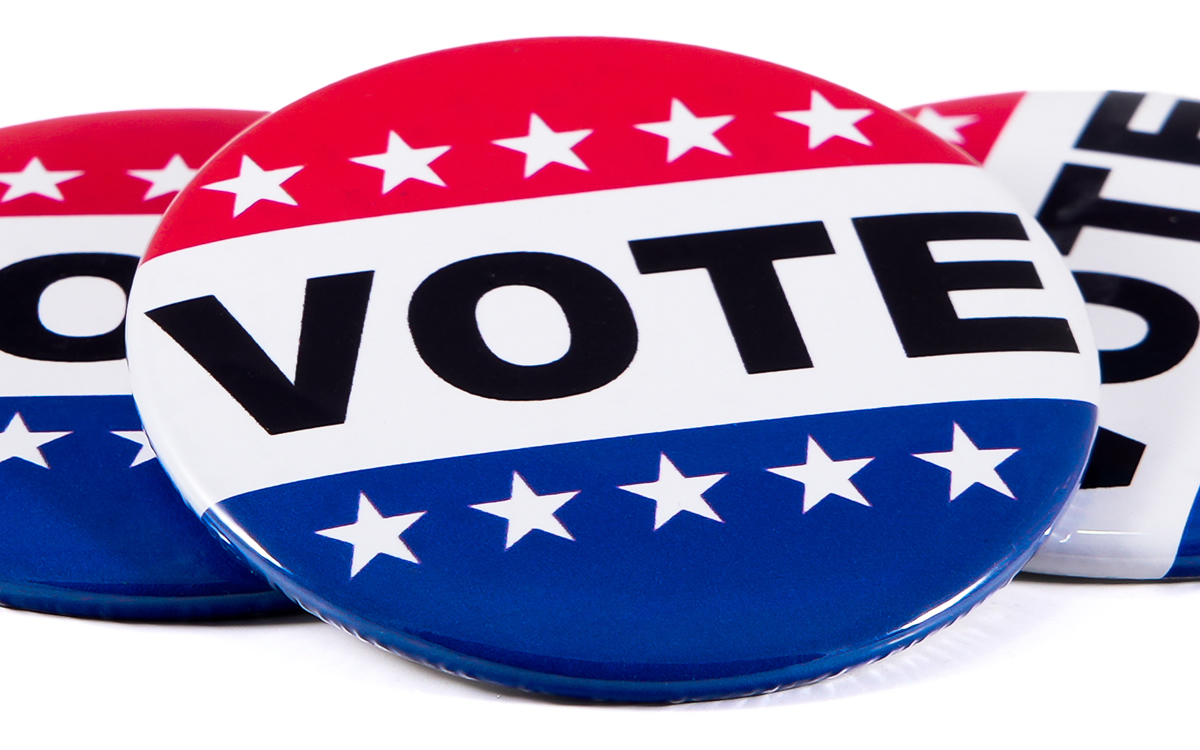
I know Kathy McGuiness, and there is no one more qualified to replace Pete Schwartzkopf as 14th District Representative.
I have owned a home in Sussex County for more than 25 years, and have been coming to Rehoboth Beach for 40. I followed Kathy’s career, and know the time she has given to the people of the state and District. No one can match her ability to do the job. Kathy is a health care professional, and a mother, committed to continue to fight to protect every woman’s health and reproductive rights.
“As a registered pharmacist, I’ve been on the front lines when it comes to health care,” she said. “I’ve been with patients who cried at the counter when they couldn’t afford their medicines, administered COVID shots during the pandemic, struggled when my mother couldn’t schedule a doctor’s appointment for weeks, and joined my sister to advocate for her son, who is in a wheelchair, when he can’t get the services he needs. We have a health care crisis in Sussex County.”
Kathy is committed to attracting, and retaining, doctors, nurses, specialists, and pharmacists, to the fastest-growing county in the state. She has committed to seeing state and federal regulators never again identify the families, and retirees, in the 14th district, as being under-served in healthcare.
Kathy graduated from Cape Henlopen High School and her mom taught 6th grade at Shields Elementary. She knows first hand the struggles of our children, and teachers. She is committed to listening to, and working with, local and state officials, parents, and teachers, to ensure the resources needed to facilitate the best possible education for all our children.
Born and raised in the district, now bringing her family up here, Kathy understands the value of the unique, precious, natural resources in Eastern Sussex County. She will continue to work to protect our beaches and natural resources. She will fight for state funding for sensible, responsible, infrastructure and traffic projects, that truly meet the needs of the community. Kathy takes the fight to Dover understanding tourism with her experience as a six-term Rehoboth Beach Commissioner. She is a businesswoman, and founding president of Rehoboth Beach Main Street. She will fight to protect and promote local businesses, press DelDOT to improve traffic flow, and importantly, work with state and county officials to create more safe and affordable workforce housing.
No one has the broad experience Kathy has. She has been a member of the 14th District’s Democratic Committee; a trustee at Delaware State University; a member of the Delaware Film Commission; a member of CAMP Rehoboth Board of Directors and the YMCA Sussex Board; and Lewes-Rehoboth Meals on Wheels board. She volunteered with Delaware Food Bank, Just Soup Ministry, Shepherd’s House, Planned Parenthood, and the Seashore Striders.
Kathy was named State of Delaware, Tourism Person of the Year; Business and Professional Women’s Employer of the Year; and recently, 2022 Delaware Pharmacist of the Year. She is married to Steve, a river boat pilot, and is mom to three amazing children. Has one grandchild, and another on the way.
Let me address the only issue some may have with Kathy. She was accused of six very questionable criminal counts when serving as a successful State Auditor. Of the most serious, the jury found her not guilty on three, and the judge threw two others out. She was convicted of one simple misdemeanor, for hiring her daughter as an intern, which she only did after the Delaware Attorney General assigned to her office, said it was legal. As Pete Schwartzkopf said at her campaign announcement, this is nothing that so many others in the state have done. Kathy said, “I’ve paid my debt to the state through a fine and community service. Now I’m ready to get back to what I have done my entire adult life — help and serve the people of Eastern Sussex County.”
So, I am honored to add my name to those of Speaker of the Delaware House Pete Schwartzkopf, 20th District Representative Stell Selby, Dewey Beach Mayor Bill Stevens, Dewey Council member Paul Bauer, former Rehoboth Planning Commission Chair Richard Perry, former Ambassador Tom McDonald, former Rehoboth Beach Commissioner Steve Scheffer, former Dewey Mayor Pat Wright, and former Democratic County Chair and Judge, Mitch Crane, all endorsing Kathy McGuiness for 14th District Representative.
They know Kathy is the candidate for those who want to see responsible, sustainable growth, and continued improvements in Sussex County. She said, “When elected, I promise to listen to your questions and concerns. I will reach out, and remain available for conversations with everyone. I will serve with renewed dedication and humility. I promise to give it everything I’ve got.” So, vote Kathy McGuiness for District 14th Representative on Sept. 10. She will make us all proud.
Peter Rosenstein is a longtime LGBTQ rights and Democratic Party activist. He writes regularly for the Blade.
Opinions
Advocating for the Queer Community On and Off The Job
One organ donor can save up to eight lives
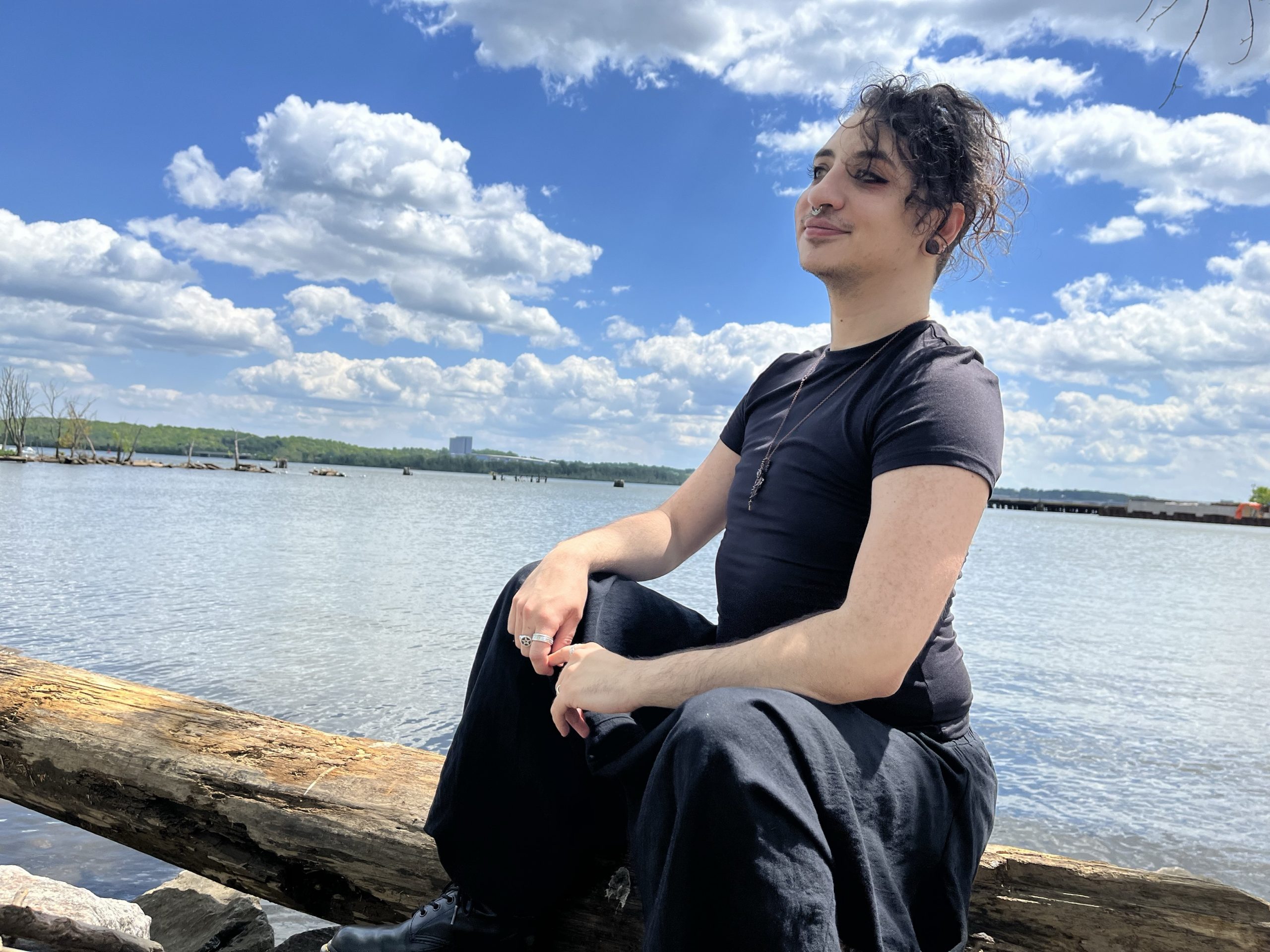
As a proud trans man, Kai Sprando recognizes the importance of visibility and education in fostering understanding and acceptance of the LGBTQIA+ community. His commitment to spreading awareness and advocating for queer experiences is something he champions on both a personal and professional level.
In 2019, Kai began working in the organ donation field as it provides a convergence of purpose and opportunity, which he embraced wholeheartedly to make a difference in people’s lives. Kai works as an Instructional Designer at Infinite Legacy, where he develops educational resources, curriculum and training plans primarily for clinical staff. At Infinite Legacy, he found not just a job, but a community of compassionate individuals who support him in every aspect of his trans journey.
In Kai’s eyes, organ donation is more than a medical procedure; it is a lifeline and second chance for individuals with end stage organ failure. He also sees it as a way for organ donors to continue their legacy of kindness beyond their time on Earth. He is deeply moved by the profound impact that one organ donor has to save up to eight lives. This knowledge fuels Kai’s passion for his work, driving him to encourage others to learn about the transformative power of organ donation.
For Kai, education is key. He believes that the more people know about and understand organ donation, the better equipped they are to make informed decisions and advocate for the cause.
“The opportunity to make a difference by saving lives as an organ donor is very powerful. When I pass, I want to know that if nothing else, I tried my best to help others. That’s what life is all about to me…finding ways to make the hard things in life a little less hard, one act of kindness at a time.” said Kai.
With his background in teaching and his viewpoint as a trans man, Kai has been invited to and spoken at several national organ donation and transplantation conferences providing insight and perspective on what it means to be trans and queer, allowing his peers the ability to be more effective and caring while interacting with LGBTQIA+ people and their families.
Kai is passionate about advocating for marginalized communities and through his openness, vulnerability and willingness to share his lived experiences, Kai contributes to positive change in healthcare, particularly around gender and sexuality representation.
As he continues to advocate for change and build a better infrastructure around LGBTQIA+ needs and representation, Kai remains hopeful for the future. He has seen the important shifts and positive changes in healthcare in recent years and is determined to keep pushing for progress, one conversation at a time.
Everyone can register to be an organ donor. To learn more, visit infinitelegacy.org.
-
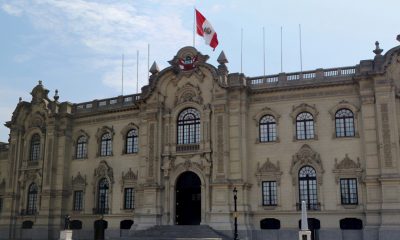
 South America2 days ago
South America2 days agoPeruvian government classifies transgender people as mentally ill
-
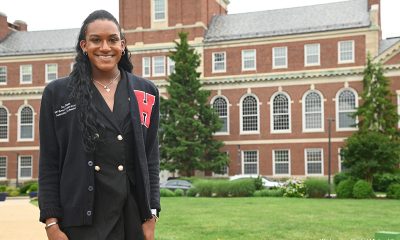
 District of Columbia2 days ago
District of Columbia2 days agoMeet Jay Jones: Howard’s first trans student body president
-
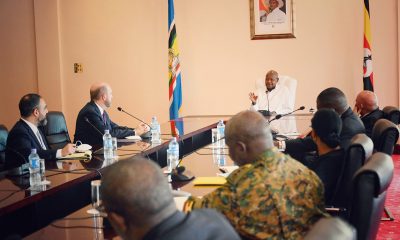
 Africa4 days ago
Africa4 days agoUgandan president meets with US ambassador
-

 LGBTQ Non-Profit Organizations5 days ago
LGBTQ Non-Profit Organizations5 days agoBlade contributor wins GLAAD Media Award










